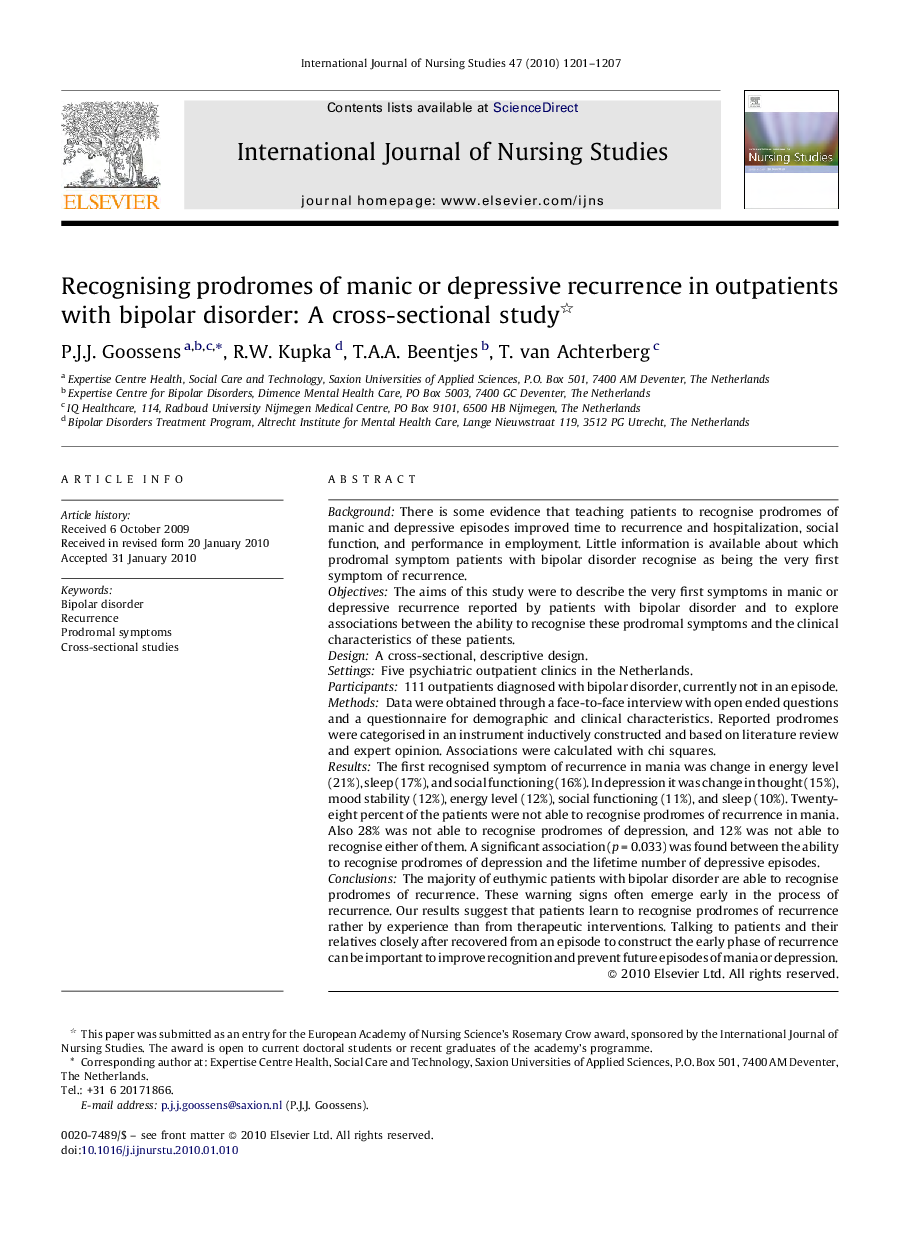| Article ID | Journal | Published Year | Pages | File Type |
|---|---|---|---|---|
| 1077624 | International Journal of Nursing Studies | 2010 | 7 Pages |
BackgroundThere is some evidence that teaching patients to recognise prodromes of manic and depressive episodes improved time to recurrence and hospitalization, social function, and performance in employment. Little information is available about which prodromal symptom patients with bipolar disorder recognise as being the very first symptom of recurrence.ObjectivesThe aims of this study were to describe the very first symptoms in manic or depressive recurrence reported by patients with bipolar disorder and to explore associations between the ability to recognise these prodromal symptoms and the clinical characteristics of these patients.DesignA cross-sectional, descriptive design.SettingsFive psychiatric outpatient clinics in the Netherlands.Participants111 outpatients diagnosed with bipolar disorder, currently not in an episode.MethodsData were obtained through a face-to-face interview with open ended questions and a questionnaire for demographic and clinical characteristics. Reported prodromes were categorised in an instrument inductively constructed and based on literature review and expert opinion. Associations were calculated with chi squares.ResultsThe first recognised symptom of recurrence in mania was change in energy level (21%), sleep (17%), and social functioning (16%). In depression it was change in thought (15%), mood stability (12%), energy level (12%), social functioning (11%), and sleep (10%). Twenty-eight percent of the patients were not able to recognise prodromes of recurrence in mania. Also 28% was not able to recognise prodromes of depression, and 12% was not able to recognise either of them. A significant association (p = 0.033) was found between the ability to recognise prodromes of depression and the lifetime number of depressive episodes.ConclusionsThe majority of euthymic patients with bipolar disorder are able to recognise prodromes of recurrence. These warning signs often emerge early in the process of recurrence. Our results suggest that patients learn to recognise prodromes of recurrence rather by experience than from therapeutic interventions. Talking to patients and their relatives closely after recovered from an episode to construct the early phase of recurrence can be important to improve recognition and prevent future episodes of mania or depression.
